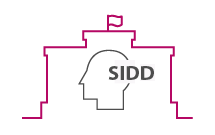
The Mental Health Association of Hong Kong - Cornwall School

School for Children with
Severe Intellectual Developmental Disorder
(The following information is provided by the school.)
Highlights
Ideology of self-directed learning derived from the concept of self-determination originated from Deci & Ryan and Wehmeyer in the 1980’s. Then Abery and Stancliffe enriched it to highlight that every person with intellectual developmental disorder has the instinctive need to exercise self-determination, and though well organized education and training, they can achieve it. For our students with severe intellectual developmental disorder, their need and right of self-determination tends to be blurred and overlooked because of their cognitive, physiological and communicative disadvantages and the lack of environmental facilities and opportunities. In view of this, our school exerted full commitment to practice invitational education from 2009, to aim at providing and maximizing opportunities for students to learn and practise self-directed learning.
Among the series of programs and activities to help students to practise self-directed learning, “Happy to Choose Day” is one of the big day every year. Students choose and put on their favorite clothes to school, choose their interested activities and food. Moreover, we regularly have “Favorite Snacks Chosen” time, “Class Representatives Meetings”, “Floor Residents Meetings” at boarding section, “Afternoon Leisure Time Activities Chosen” sessions, all these are great time for students to learn and exercise self-directed learning. We plan and implement these deliberately, not only to help students to learn how to intentionally choose, but also to vigorously share with our staff and parents the importance to enrich opportunities for students to have choices in daily routines, to empower our children, to help them to grow and flourish.
Besides environmental factors, physiological and cognitive disadvantages may also have unfavorable influences on our students’ communicative abilities. We actively and creatively utilize real objects, pictures and cards, communicative aids and facilities to help students improve their expression and communication, to express their feelings and thoughts. We want them to be seen, to be heard, and to be understood. As John Bowby said, “It is only when the child feels “felt” that they know they exist.” This is what we value and believe, and helping students to practise self-directed learning is its manifestation.
